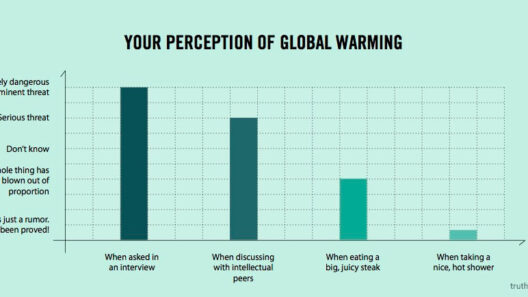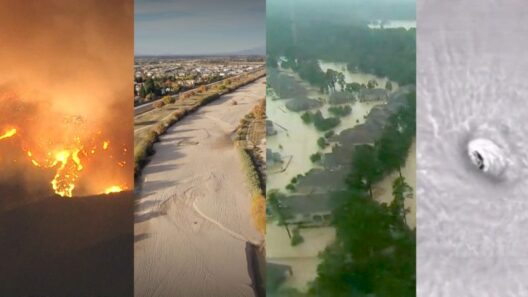In the contemporary climate discourse, an unsettling truth emerges: developing nations are disproportionately bearing the brunt of global warming. This phenomenon underscores an urgent need for global solidarity and empathy, as countries with scant resources are finding themselves at the precipice of environmental crises that they neither caused nor have the means to ameliorate. The ramifications of global warming reveal themselves in the fabric of daily life in these nations, shrouding their futures in uncertainty and peril.
Notably, developing nations are often situated in regions that are inherently vulnerable to climate-related changes. Many of these countries are characterized by arid landscapes, low-lying coastal areas, and fragile ecosystems. Due to a combination of poor infrastructure, limited adaptive capacities, and economic constraints, these nations are particularly susceptible to extreme weather events, including hurricanes, droughts, and floods. For instance, nations in Sub-Saharan Africa face recurring droughts that threaten agricultural yields and water security. This scenario starkly contrasts with more affluent countries, where resources and technological advancements can mitigate such risks more effectively.
A key aspect of this chapter in the climate narrative is the concept of climate injustice. This notion encapsulates the unfair distribution of climate-related burdens, where developing nations, which contribute the least to global greenhouse gas emissions, suffer the most from their effects. It evokes a profound moral dilemma as wealthier nations often neglect their historical responsibility for carbon emissions that predominantly stem from industrialization and economic growth. The disparity is glaring; industrialized nations are equipped with robust mechanisms to adapt and respond to climate change, whereas developing nations often are left to navigate the tumultuous waters of climate adversity with minimal resources.
One of the most alarming manifestations of global warming is the rise in sea levels, which poses an existential threat to numerous coastal nations. Take the case of the Maldives, where the reality of a submerged future looms ominously. The country is already experiencing severe flooding, which has led to the displacement of communities and loss of habitable land. Similarly, nations like Bangladesh grapple with recurrent flooding that displaces millions, amplifying socio-economic vulnerabilities and exacerbating poverty. As rising tides encroach upon these communities, the implications extend beyond mere physical displacement, creating a cascade of humanitarian crises.
In addition to sea-level rise, extreme weather patterns catalyzed by global warming are wreaking havoc on agricultural systems in developing countries. Smallholder farmers, the backbone of food production, are witnessing their livelihoods imperiled by unpredictable weather. Changing precipitation patterns and surging temperatures are altering growing seasons and diminishing crop yields. In nations where agriculture constitutes a significant portion of the economy and sustenance, these changes threaten food security, malnutrition, and economic stability. As the pattern of ‘getting poorer’ continues, the link between climate change and exacerbated poverty becomes irrefutably clear.
The health repercussions of climate change in developing nations constitute another critical facet of this discourse. The rise in temperatures facilitates the proliferation of vector-borne diseases, such as malaria and dengue fever, against a backdrop of tarnished healthcare infrastructure. Vulnerable populations, particularly children and the elderly, face heightened risks as healthcare systems strain beneath the weight of climate-induced illnesses. The precarious intersection of climate change and public health necessitates a rethinking of resource allocation to ensure vulnerable populations receive adequate healthcare and protection.
However, amidst this challenging landscape, a shift in perspective emerges. The resilience and ingenuity of communities in developing nations illuminate a pathway towards adaptation and sustainability. These communities are at the forefront of innovative solutions that intertwine traditional knowledge with modern practices. From climate-resistant crop varieties to community-based water management systems, resilience is being cultivated at the grassroots level. This local ingenuity paves the way for not just survival amidst adversity, but also for a sustainable future that acknowledges the interconnectedness of our global ecosystem.
International cooperation is vital in this climate equation. Developed nations must honor commitments made through frameworks like the Paris Agreement, providing financial and technical assistance to developing nations. Such measures can alleviate some of the systemic inequities exacerbated by climate change. Climate financing, technology transfer, and capacity building form the bedrock of a progressive approach to tackling global warming. The burgeoning concept of climate justice calls for enhanced accountability and collaboration, urging wealthier nations to address the historical and ongoing injustices that see others bearing an inequitable burden.
Concurrently, education and awareness are paramount in galvanizing grassroots movements and fostering global solidarity. By amplifying the narratives of those affected by climate change, the world can cultivate empathy and mobilize action towards meaningful interventions. The telling of stories—those of farmers losing their crops, families dislocated by floods, and communities confronting the unrelenting tide of climate impacts—can evoke a sense of urgency that transcends borders. Engaging a diverse audience through education can help bridge the empathic divide between developed and developing nations, catalyzing concerted action toward a shared goal: sustainable living in harmony with our planet.
In conclusion, as global warming continues to unravel the fabric of societies worldwide, it becomes increasingly clear that the effects are not felt uniformly. Developing nations stand at the front lines, grappling with disproportionate challenges that demand a collective response rooted in justice, cooperation, and innovation. The shift towards equitable solutions must embrace a holistic approach that recognizes the interdependence of environmental health, community resilience, and social equity. The task ahead is not merely to combat climate change but to reshape our global narrative towards one of solidarity, shared responsibility, and sustainable development for all.






